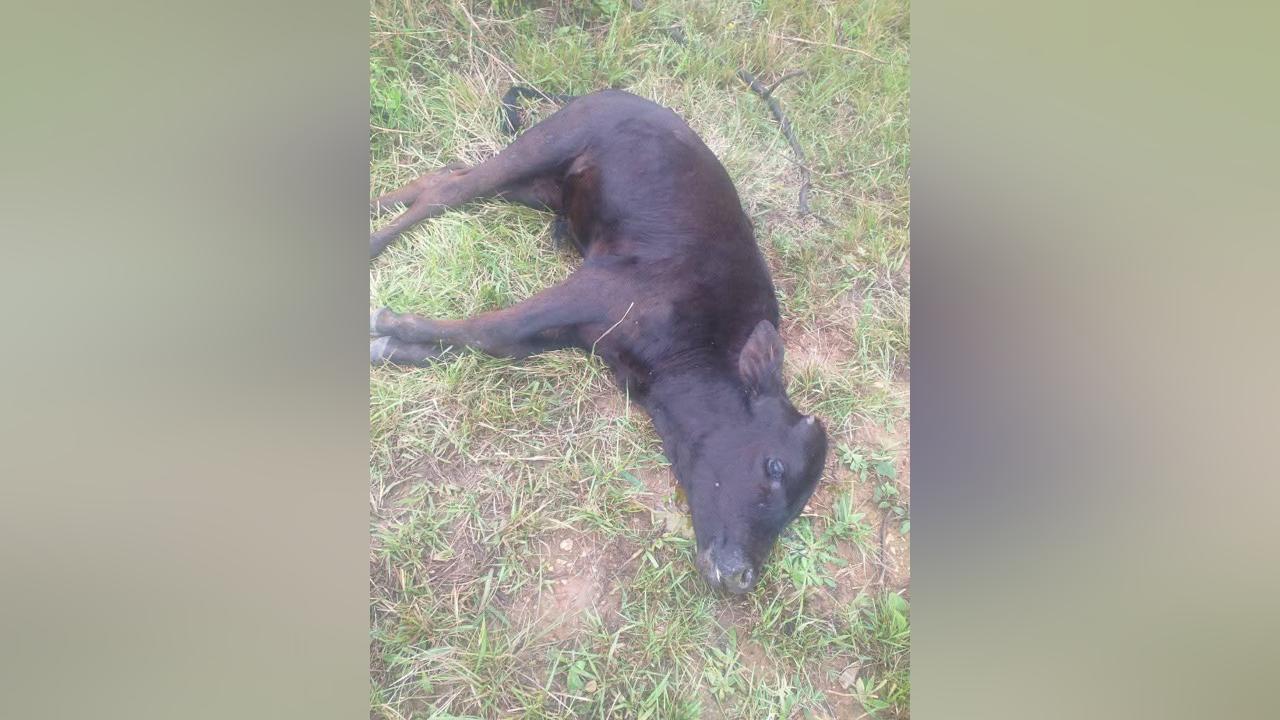Africa-Press – Eswatini. The livestock sector in Eswatini is under pressure as outbreaks of Foot-and-Mouth Disease (FMD) spread across the country.
Recent reports documented suspected outbreaks and cattle deaths in Malindza, Mpaka, and Sikhuphe.
Earlier in 2025, members of the House of Assembly raised concerns about an impasse within the Department of Livestock and Veterinary Services (DLVS) in the Ministry of Agriculture.
Worth noting the latest outbreak comes just two months after foot and mouth disease was confirmed in the Lubombo region.
Since the first reported case on May 12 at the Sikhwebezi dip tank at Mkhwakweni, Shiselweni, the disease has spread rapidly across multiple dip tanks in affected zones. Believed to have originated from South Africa, the initial case prompted swift containment measures, including movement restrictions and mass vaccination efforts.
Farmers at Lubilweni, Luhhwahweni, Makhovini, Mpaka, Maphatsindvuku, Sikhuphe, Lubhuku, and across parts of the Lubombo region are sounding the alarm over a surge in suspected FMD cases. This follows earlier warnings from Lubulini and Big-Bend, where cattle began showing clinical signs consistent with the virus.
Sipho Magagula, a farmer from Mpaka, described a worsening situation where he said they keep losing their cattle that showed clear signs of foot and mouth.
“Last week, a farmer lost four cattle that showed clear signs of foot and mouth. Another from the Sikhuphe dip tank also reported losing a cow with similar symptoms.
Several deaths have occurred under mysterious circumstances, deepening fears of a fast-spreading outbreak,” said Magagula.
Meanwhile, a parliamentary Select Committee found that staffing shortages and resignations within the department were hampering the response to the FMD outbreak.
The committee, led by MP Sicelo Prince Dlamini, called on the Ministry of Agriculture to provide a comprehensive report on the outbreak, including the status of veterinary services and resources deployed.
Legislators also requested improved working conditions for cordon and border guards and tighter controls on livestock movements.
The outbreak is considered serious as FMD was last detected in May 2025 at the Sikhwebezi dip tank in Shiselweni. Since then, the disease has reportedly spread rapidly, disrupting exports and threatening the livelihoods of communal and commercial farmers.
In a media briefing, Principal Secretary Sydney Simelane urged farmers to rely on official vaccination campaigns and warned against using private doses. He confirmed that 60 cordon guards had been hired to reinforce border posts and internal controls.
The government has committed E38 million to rebuild frontier infrastructure to tighten livestock movement controls and prevent cross-border transmission.
Parliament also highlighted weaknesses, such as intermittent enforcement of movement restrictions and temporary closure of abattoirs, which were undermining biosecurity.
Farmers reported that more than ten dip tanks and farms were under quarantine, with over 100 suspected cases across affected areas. Delayed public disclosure and collapsed cattle markets have increased frustration among livestock owners.
To address these concerns, the Agriculture Committee now receives weekly briefings on vaccination progress, herd traceability, export market status, and potential compensation for farmers.
Officials emphasise that while FMD does not pose a risk to humans, its economic impact is severe, including reduced productivity, lost revenue, and potential long-term damage to the livestock industry.
The UK government’s veterinary agency has restricted meat imports from Eswatini following notification of the outbreak, highlighting the urgent need to restore confidence in the country’s veterinary controls.
Parliament’s oversight signals that the outbreak is a national priority. Effective containment measures, vaccination campaigns, and movement controls will determine the recovery of Eswatini’s livestock sector and its ability to regain access to international markets.
Farmers and legislators will be closely monitoring the Ministry’s performance in the coming weeks, with livelihoods and national revenue at stake.
For More News And Analysis About Eswatini Follow Africa-Press







